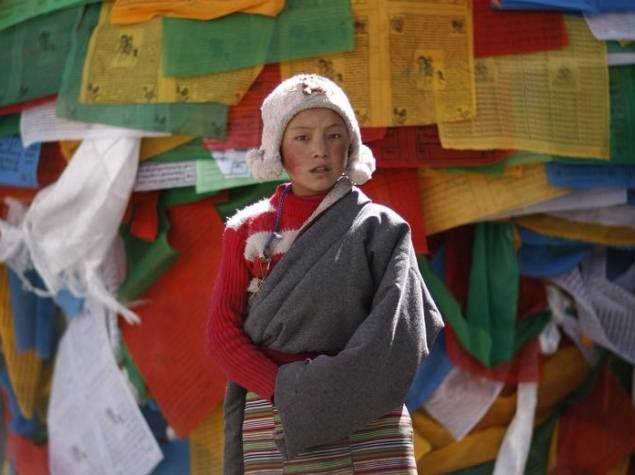- Home
- Internet
- Internet News
- Tibet Propaganda Boss Vows to 'Seal' Internet to Stop Separatists
Tibet Propaganda Boss Vows to 'Seal' Internet to Stop Separatists

Dong Yunhu, Tibet's propaganda department head, made the remarks at a meeting on Monday, the State Council's information office said, as China seeks to stamp out ethnic unrest after a string of violent attacks it has blamed on separatists from the far-western region of Xinjiang.
"We must bring down pressure from the sky, find and confiscate materials on the ground, and seal and stifle the Internet - the holy trinity of supervision and control of the system," Dong said. "(This is) to cut off Tibetan separatist propaganda from infiltrating and destroying all manner of communication."
Tibet has also seen heightened unrest in recent years. More than 120 Tibetans have set themselves on fire since 2009 to protest Beijing's rule, with many calling for the return of their exiled spiritual leader, the Dalai Lama.
Beijing says the self-immolators are terrorists and has called the Dalai Lama a "wolf in sheep's clothing" who seeks to split the country in two.
The Dalai Lama, who fled into exile in India in 1959 after an abortive uprising against Chinese rule of Tibet, says he merely wants autonomy.
China maintains tight control over the media. Censorship is widespread, and Internet users cannot access information about many topics without special software to circumvent restrictions.
The Communist Party last year renewed a campaign on online discourse, threatening legal action against people whose perceived rumours on microblogs are reposted more than 500 times or seen by more than 5,000 people.
© Thomson Reuters 2014
For details of the latest launches and news from Samsung, Xiaomi, Realme, OnePlus, Oppo and other companies at the Mobile World Congress in Barcelona, visit our MWC 2026 hub.
Related Stories
- Samsung Galaxy Unpacked 2026
- iPhone 17 Pro Max
- ChatGPT
- iOS 26
- Laptop Under 50000
- Smartwatch Under 10000
- Apple Vision Pro
- Oneplus 12
- OnePlus Nord CE 3 Lite 5G
- iPhone 13
- Xiaomi 14 Pro
- Oppo Find N3
- Tecno Spark Go (2023)
- Realme V30
- Best Phones Under 25000
- Samsung Galaxy S24 Series
- Cryptocurrency
- iQoo 12
- Samsung Galaxy S24 Ultra
- Giottus
- Samsung Galaxy Z Flip 5
- Apple 'Scary Fast'
- Housefull 5
- GoPro Hero 12 Black Review
- Invincible Season 2
- JioGlass
- HD Ready TV
- Latest Mobile Phones
- Compare Phones
- Apple iPhone 17e
- AI+ Pulse 2
- Motorola Razr Fold
- Honor Magic V6
- Leica Leitzphone
- Samsung Galaxy S26+
- Samsung Galaxy S26 Ultra
- Samsung Galaxy S26
- MacBook Pro 16-Inch (M5 Max, 2026)
- MacBook Pro 16-Inch (M5 Pro, 2026)
- Apple iPad Air 13-Inch (2026) Wi-Fi + Cellular
- Apple iPad Air 13-Inch (2026) Wi-Fi
- Huawei Watch GT Runner 2
- Amazfit Active 3 Premium
- Xiaomi QLED TV X Pro 75
- Haier H5E Series
- Asus ROG Ally
- Nintendo Switch Lite
- Haier 1.6 Ton 5 Star Inverter Split AC (HSU19G-MZAID5BN-INV)
- Haier 1.6 Ton 5 Star Inverter Split AC (HSU19G-MZAIM5BN-INV)
















